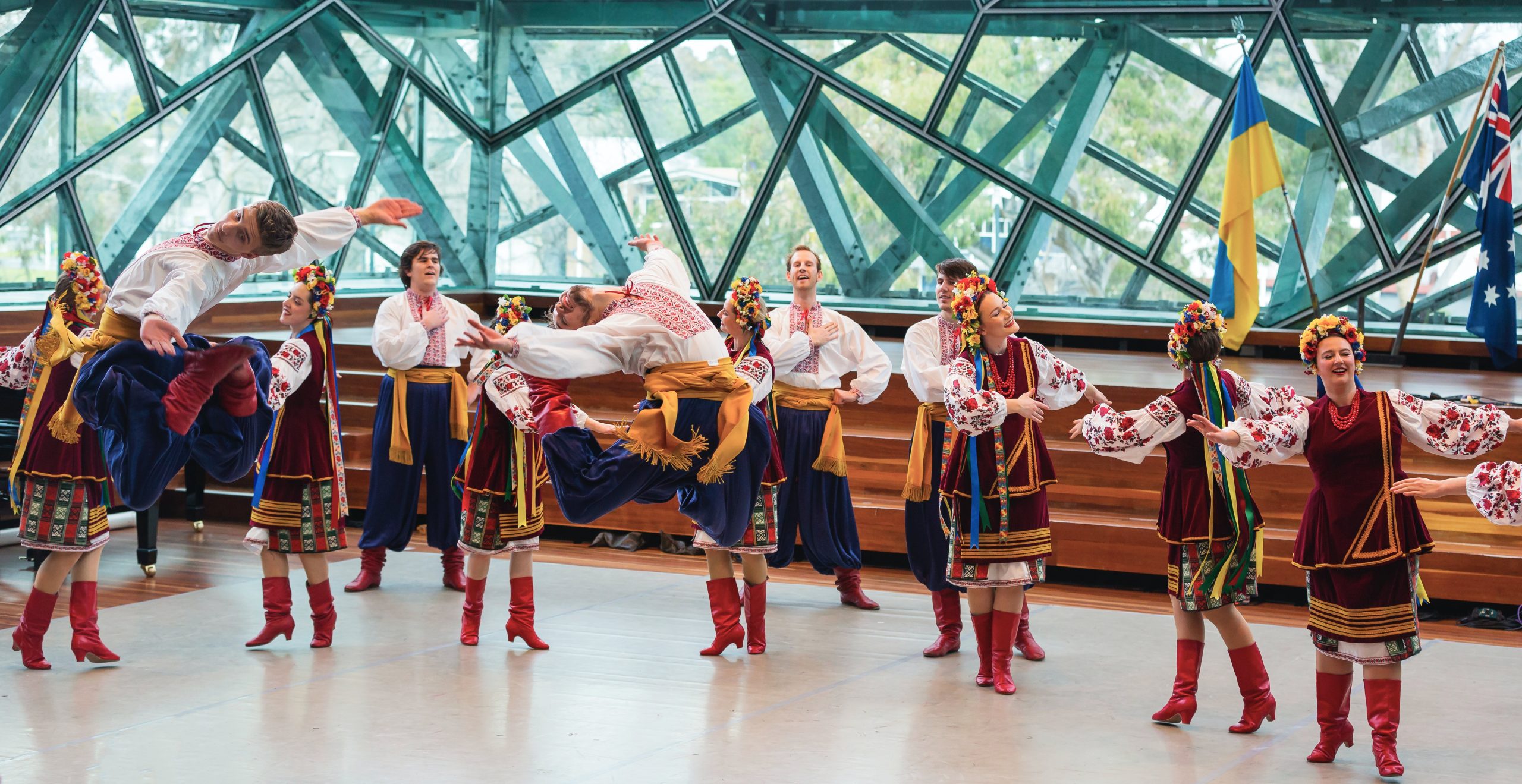Folklore News Today: Unveiling the Stories of Our Past and Present
Welcome to Folklore News Today, a platform dedicated to uncovering the rich history and cultural significance of folklore. Folklore encompasses the stories, beliefs, and customs that have been passed down through generations, and it continues to play a vital role in shaping our understanding of the world around us. On this site, we explore the origins and evolution of legends, myths, and tales, and examine how they have influenced our culture and society over time. We also delve into how folklore is being taught in the classroom, and highlight the various ways it can be used to promote learning and understanding among students. Additionally, we look at how technology and social media are shaping folklore today, and celebrate the diversity of traditions that make up our collective heritage. Join us as we unveil the stories of our past and present, and discover the timeless wisdom and beauty that folklore has to offer.
Uncovering the Hidden Gems of Folklore: Exploring the Origins and Evolution of Legends, Myths, and Tales
Folklore has been an integral part of human culture since ancient times. It includes the tales, beliefs, and customs that have been passed down from generation to generation. Folklore takes many forms, including legends, myths, fables, and fairy tales. These stories often have a moral lesson or serve to explain natural phenomena. By exploring the origins and evolution of folklore, we gain insight into the beliefs and values of different cultures and how they have changed over time.
One of the most fascinating aspects of folklore is how it changes over time. Stories that were once considered sacred or taboo may become popular entertainment, and the meanings of these stories can shift as they are adapted to new contexts. For example, the myth of Medusa, which was originally a symbol of female power and a warning against male aggression, has been reinterpreted in many modern adaptations as a monster to be defeated by male heroes. By examining how these stories have evolved, we can gain a deeper understanding of the cultures that created them and how they have been influenced by outside forces.
At EssayHub.com, we specialize in providing custom research papers that explore the intricate connections between folklore, culture, and the continuity of human history. Folklore serves as a crucial bridge that links the past and the present, enabling us to trace the origins of many stories that we tell today to ancient myths and legends. By examining the interplay between these stories and their historical roots, we can deepen our understanding of the cultural traditions that unite us all. For instance, the Harry Potter series draws upon a diverse range of folklore from various cultures, such as British, Celtic, and Native American, highlighting the global nature of storytelling. By recognizing these connections, we can gain a richer appreciation for the cultural diversity and richness of our world.
Finally, uncovering the hidden gems of folklore can be a powerful tool for personal growth and self-discovery. Many of the stories we tell are designed to help us make sense of the world and our place in it. By exploring these stories and the themes they address, we can gain insight into our own lives and the challenges we face. For example, the story of the hero's journey, which is a common theme in many myths and legends, can be a powerful metaphor for personal growth and transformation. By recognizing these connections, we can find inspiration and guidance in the stories that have been passed down through generations.
Teaching with Folklore: Incorporating Cultural Traditions into the Classroom to Promote Learning and Understanding

Folklore offers a unique opportunity for educators to engage students in learning about different cultures and traditions. By incorporating folklore into the classroom, teachers can create a rich and diverse learning environment that promotes understanding and empathy. For example, teaching students about the myths and legends of different cultures can help them to appreciate the diversity of human experience and gain a deeper understanding of the similarities and differences between different cultures.
Folklore can also be used to teach a variety of academic subjects, including literature, history, and social studies. For example, studying the folktales of a particular culture can provide valuable insight into the beliefs, values, and customs of that culture. Similarly, exploring the historical context of a particular myth or legend can help students to gain a deeper understanding of the social and political factors that shaped that culture.
If you're struggling with your physics homework, you might be surprised to know that teaching with folklore can help you develop important life skills as well as promote academic learning. Folklore provides a rich and diverse source of complex themes and moral lessons that require students to think deeply and critically about the world around them. Exploring folklore can also stimulate imagination and creativity, as students are encouraged to imagine and create their own stories and traditions. By incorporating folklore into your studies, you can develop valuable skills such as critical thinking, creativity, and empathy that will serve you well beyond the classroom. So, if you're feeling overwhelmed and need some extra help, just say "do my physics homework" and explore the fascinating world of folklore to enhance your learning experience.
Finally,
teaching with folklore can be a powerful tool for promoting social
justice and equality. Folklore often reflects the values and beliefs of
the dominant culture, and can perpetuate stereotypes and prejudices. By
exposing students to a diverse range of folklore, educators can
challenge these stereotypes and encourage students to think critically
about the impact of culture and tradition on society. Similarly, by
exploring the stories and traditions of marginalized communities,
educators can help students to appreciate the richness and diversity of
human experience and promote a more just and equitable society.
Folklore in the Modern Age: Examining the Role of Technology and Social Media in Shaping Folklore Today
Folklore has been a part of human culture since ancient times. Folklore refers to the traditional beliefs, customs, and stories that are passed down from one generation to another. In the modern age, technology and social media have played a significant role in shaping folklore. Social media platforms like Instagram, TikTok, and Twitter have become popular mediums for people to share and spread folklore.
The impact of technology on folklore has been both positive and negative. On one hand, technology has made it easier to preserve and share folklore. Digital technologies have made it possible to record and document traditional stories, customs, and beliefs. Online platforms like YouTube have also made it easier for people to access and share folklore from different parts of the world.

The advent of technology has undoubtedly revolutionized the way we communicate, but it has also had a detrimental impact on traditional folklore. The rise of digital media has resulted in the displacement of traditional forms of storytelling and communication, leading to a decline in the number of people who are knowledgeable about the rich cultural heritage of folklore. This alarming trend has put many traditional stories and beliefs at risk of being lost forever, as the younger generation may not be aware of their significance. Therefore, it is crucial that we preserve and promote traditional folklore in innovative ways to ensure its continuity for future generations. If you are struggling to keep up with your dissertation, consider exploring the role of technology in the loss of traditional folklore, and how we can preserve it for posterity. Our dissertation writers can help you delve deeper into this fascinating topic and develop a comprehensive understanding of the issue at hand.
In
conclusion, technology and social media have had a significant impact on
folklore in the modern age. While technology has made it easier to
preserve and share folklore, it has also contributed to the loss of
traditional folklore. As we continue to embrace new technologies, it is
important to remember the value of traditional folklore and the role it
plays in shaping our cultural identity. By examining the role of
technology and social media in shaping folklore today, we can better
understand how to preserve and promote traditional stories and beliefs
for future generations.
Preserving Our Heritage: Celebrating the Diversity of Folklore and Its Importance in Our Communities and Beyond
Folklore is a vital part of human heritage, representing the stories, customs, and traditions that have been passed down through generations. It plays a crucial role in preserving the identity of communities and their unique cultural heritage. By celebrating the diversity of folklore, we can appreciate the different traditions that exist in our communities and beyond.
In a world where time is of the essence, Speedy Paper Reviews offer a shortcut to finding the perfect academic ally. Students can save precious hours by relying on the experiences of their peers, ultimately leading them to a service that aligns with their needs and expectations.
Preserving our heritage is essential in ensuring that future generations can learn from the past and continue to uphold the values and traditions of our ancestors. Folklore is an important tool for achieving this, as it connects us to our roots and helps us understand the cultural history of our communities. By embracing folklore, we can create a sense of belonging and pride in our cultural heritage.
Folklore is not just limited to a particular region or community; it is a universal human experience that transcends borders and connects us to our shared humanity. By celebrating the diversity of folklore, we can appreciate the different customs and traditions that exist across the world. We can learn about the beliefs and practices of other cultures and gain a greater understanding of our place in the world.
In conclusion, preserving our heritage is vital in ensuring that we maintain a connection to our cultural roots and identity. Folklore plays an important role in this process, as it represents the stories, customs, and traditions that have been passed down through generations with help of Folklore Books. By celebrating the diversity of folklore, we can appreciate the unique traditions that exist in our communities and beyond. We can learn about the beliefs and practices of other cultures and gain a greater understanding of our shared humanity.